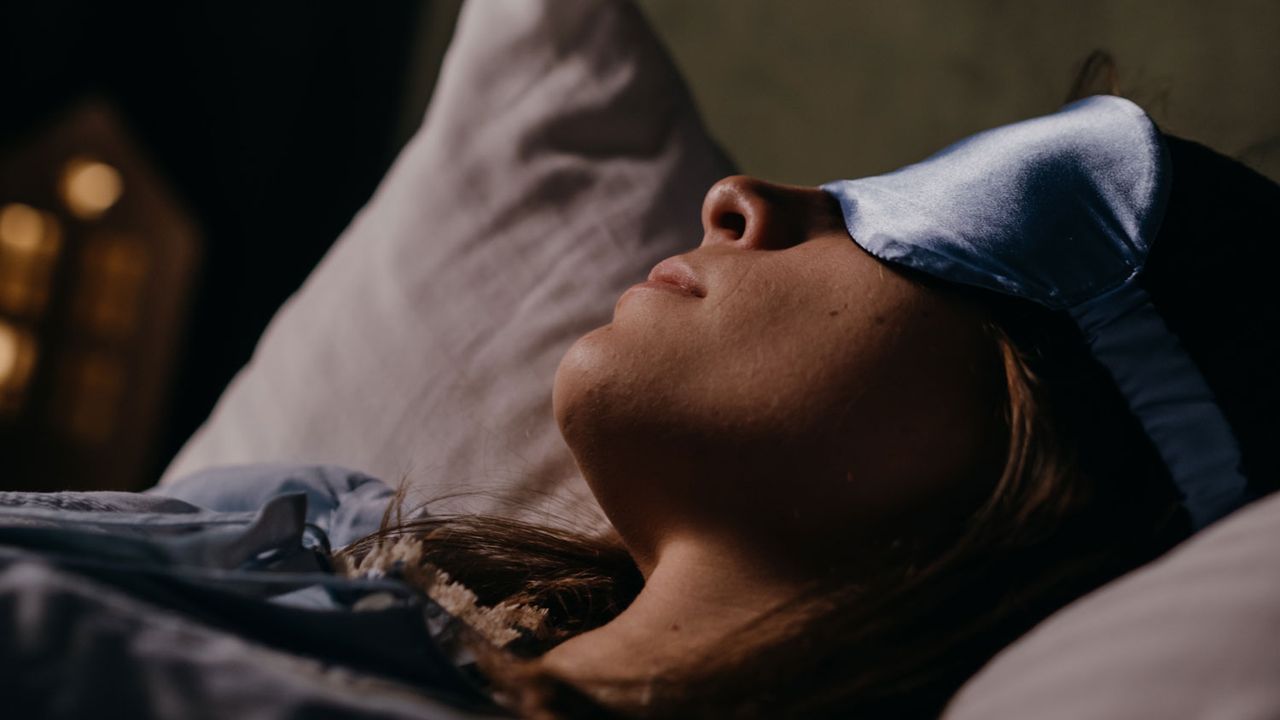
The importance of a good night’s sleep is something many of us overlook. From politicians and celebrities who claim to need less sleep than us normal folk, to assumptions that we can make up for lost sleep at weekends – many sleep myths might sound believable, but they could actually be harmful to our health.
Typically, adults need between seven and nine hours of sleep, but a lot of us aren’t getting enough. The Sleep Foundation found that 35.2% of all UK adults sleep for less than seven hours per night on average, while in the UK, almost one in five have trouble falling asleep every single night. This lack of sleep can result in a myriad of health problems, as well as disrupting our work productivity, social lives and general mood.
Want to discover how to fall asleep? T3 spoke to Dr Frankie Jackson-Spence, resident doctor at Time4Sleep, to figure out the sleep hacks that will actually make a difference. Read on for four sleep myths busted.
And if it's your bed that's the issue, head to T3's best mattress and best pillow guides for plenty of tried and tested recommendations.
- Discover the best and worst postures for sleep
- Top 3 sleep apps to help you drop off tonight
- Improve your sleep instantly with this expert pillow trick
SLEEP MYTH #1. You can train your body to sleep less
Margaret Thatcher supposedly got by on as little as four hours of sleep per night. But while it would be great if we could train our body to need less shut-eye, Jackson-Spence says that you can’t cheat your body out of the sleep it needs.
"Sleep is a non-negotiable and a fundamental pillar of our health," she says. "Lots of important functions happen during sleep, such as memory formation in our brain and the growth and repair of cells. Chronic sleep deprivation can have detrimental long term effects on our health. Once you drop below seven hours of sleep per night your body starts to experience chronic stress and the negative long term effects of chronic sleep deprivation; one of those effects being shorter life expectancy."
She adds that the short term side effects of not getting enough sleep are also noticeable. These include reduced concentration, reduced ability to problem solve, reduced memory and even things like reduced ability to recognise facial expressions and social cues.
Sign up to the T3 newsletter for smarter living straight to your inbox
Get all the latest news, reviews, deals and buying guides on gorgeous tech, home and active products from the T3 experts
"That’s why we often feel irritable and snappy and take things personally when we’re tired," she says. "Whilst you might get used to functioning at this level and being chronically tired, it’s not good for your body. Chronic sleep deprivation is chronic stress on your body and you certainly aren’t training your body to cope with this."
SLEEP MYTH #2. It doesn’t matter when you sleep, as long as you sleep
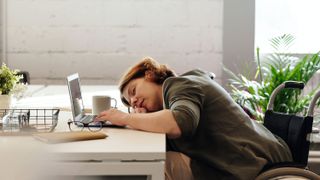
Those who often find themselves squeezing in an afternoon nap to make up for lost sleep during the night may be disappointed to hear that quality of sleep is just as important as quantity.
"Whilst hours of sleep are important, quality of sleep is also important," says Jackson-Spence. "Sleeping in a bed with a proper mattress to avoid waking up from discomfort as well as avoiding disturbance from noise or light means your body can cycle through the natural sleep cycles of light and deep sleep without disruption."
She adds that when you sleep on a sofa, in a chair or even on an aeroplane, you will undoubtedly wake up intermittently – even if you don’t remember doing so. This knocks the sleep cycle out of rhythm, which is why you don’t tend to feel as energised and refreshed when you wake up.
SLEEP MYTH #3. You can make up for lost sleep by sleeping in at the weekend
Busy weeks with little sleep might leave you believing that you can catch up on missed ZZZs by staying in bed for longer at weekends. However, this is one of the biggest – and potentially most dangerous – sleep myths, says Jackson-Spence.
"Sleep is not a bank – you can’t accumulate sleep debt during the week and then try to ‘pay it back’ and catch up at the weekend," she explains. "It’s better for your health over the long term to sleep consistently for seven to nine hours each night, even on weekends, rather than six hours or less in the week and 10 hours on a weekend. The detrimental effects on your body of not getting the recommended amount on one night can’t be reversed."
SLEEP MYTH #4. Alcohol helps you sleep
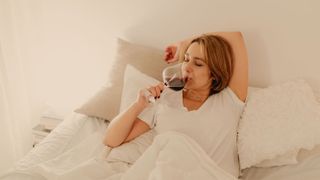
You might think that a nightcap can help you to fall asleep quicker, but alcohol is actually a huge sleep disrupter.
"Alcohol interferes with the normal cycle of light and deep sleep," explains Jackson-Spence. "For example, a heavy drinking session can cause us to spend more time in deep sleep and less time than usual in the lighter, REM stages of sleep – the stages where you dream."
However, the balance between these two stages is important. Jackson-Spence says that getting the right amount of REM sleep is key to feeling refreshed and restored the next day and critical for aspects of mental health and restoration in the brain.
"Interference with sleep quality is one of the reasons people feel the effects of a hangover the next day, along with the lingering of alcohol toxins in the blood and the effects of dehydration on the body."
-
 LG's 2025 TVs dump DTS for Dolby – is Eclipsa incoming?
LG's 2025 TVs dump DTS for Dolby – is Eclipsa incoming?LG has once again dropped DTS audio support from its TVs – but a new format may be ready to take its place
By Carrie Marshall Published
-
 I saw Samsung’s new Bespoke AI appliances, and I’m most excited about its washing machines
I saw Samsung’s new Bespoke AI appliances, and I’m most excited about its washing machinesSamsung announces new AI laundry line-up
By Bethan Girdler-Maslen Published
-
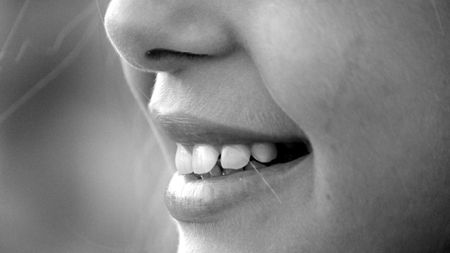 Oil pulling is going viral on TikTok for stopping morning breath – but does it actually work?
Oil pulling is going viral on TikTok for stopping morning breath – but does it actually work?4 hacks that prevent morning breath, according to a sleep expert
By Bethan Girdler-Maslen Published
-
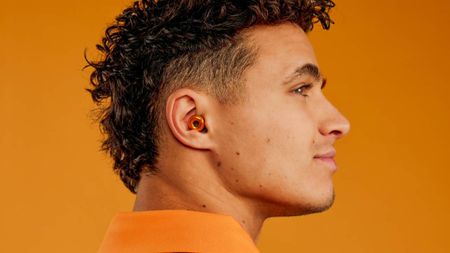 These limited edition McLaren x Loop earplugs are what you need for Formula 1 season
These limited edition McLaren x Loop earplugs are what you need for Formula 1 seasonMcLaren teams up with Loop on limited edition noise-reducing earplugs
By Bethan Girdler-Maslen Published
-
 5 sleep supplements that help me achieve 8+ hours of rest every night
5 sleep supplements that help me achieve 8+ hours of rest every nightIt took me years to perfect my sleep routine – here are the supplements that helped
By Lizzie Wilmot Published
-
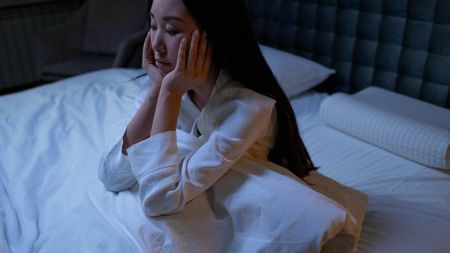 3 reasons why you wake up at 3am every night – and how to avoid it
3 reasons why you wake up at 3am every night – and how to avoid itAlways waking up in the middle of the night? This could be why…
By Bethan Girdler-Maslen Published
-
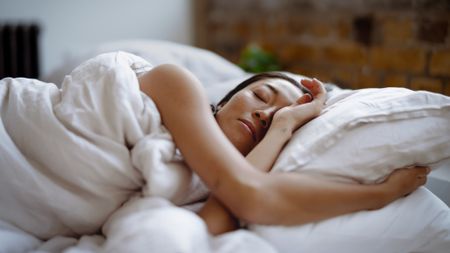 This tiny device will automatically disable your distracting apps before you sleep
This tiny device will automatically disable your distracting apps before you sleepSay hello to Kip...
By Lizzie Wilmot Last updated
-
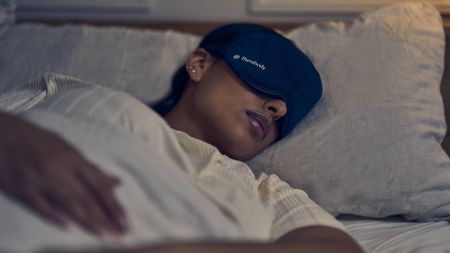 Therabody experts give 7 tips for perfecting your sleep routine for World Sleep Day
Therabody experts give 7 tips for perfecting your sleep routine for World Sleep DayFrom breathing exercises to sleep masks, here’s how to prioritise sleep, according to experts
By Bethan Girdler-Maslen Published
-
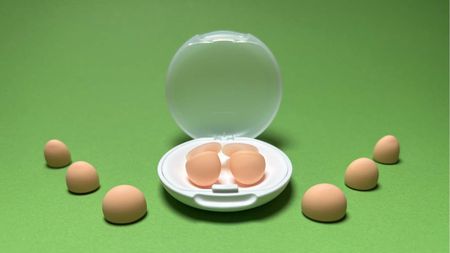 Loop Dream review: super soft earplugs to help you snooze soundly, even if you’re a side sleeper
Loop Dream review: super soft earplugs to help you snooze soundly, even if you’re a side sleeperSquishy silicone and uniquely shaped ear tips take Loop’s nighttime earplugs to dreamy heights
By Joanna Ebsworth Published
-
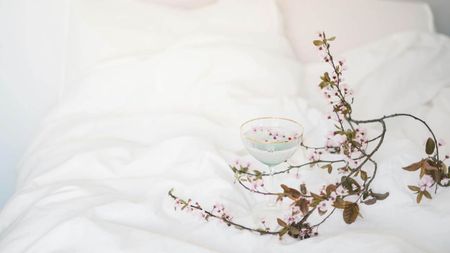 Can’t get to sleep? Grounding bed sheets could be the answer – but I need convincing
Can’t get to sleep? Grounding bed sheets could be the answer – but I need convincingIs this the future of sleep tech?
By Bethan Girdler-Maslen Published